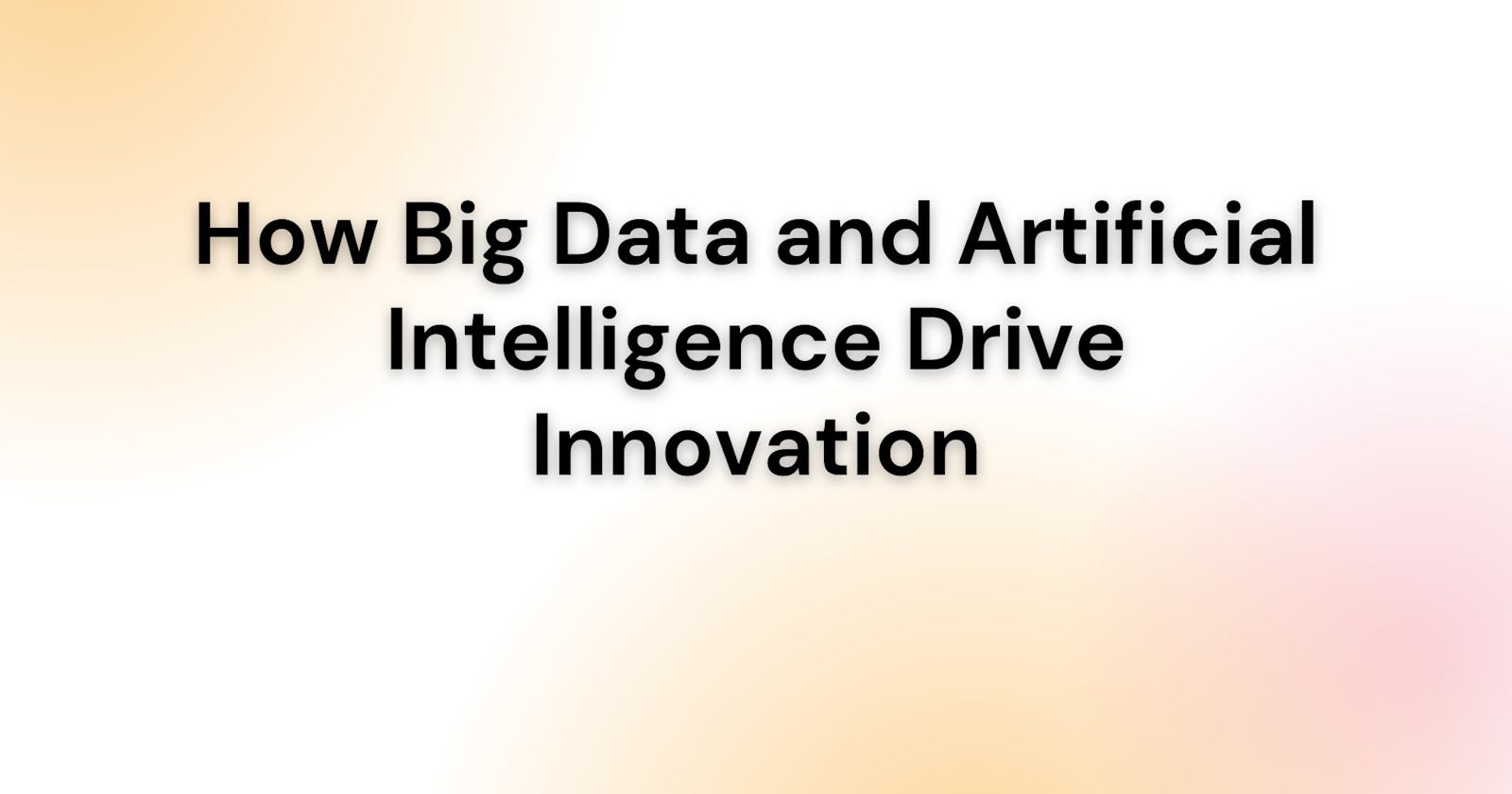Introduction:
As technology continues to advance at a rapid pace, two buzzwords that dominate the tech landscape are "Big Data" and "Artificial Intelligence (AI)." These concepts have revolutionized industries, transforming the way businesses operate, and driving innovation to new heights. In this blog post, we will explore the fascinating relationship between Big Data and AI and shed light on how they work hand in hand to shape our digital future.
The Intersection of Big Data and Artificial Intelligence: The convergence of Big Data and AI has opened up a world of possibilities, enabling businesses to extract valuable insights and make data-driven decisions. Artificial Intelligence, with its ability to analyze vast amounts of data quickly and efficiently, thrives on Big Data. Conversely, Big Data provides the fuel necessary for AI algorithms to learn, adapt, and make accurate predictions.
Leveraging Big Data for AI Applications: Artificial Intelligence companies heavily rely on vast amounts of data to train their algorithms and build intelligent systems. These companies partner with Data Analytics companies to collect, process, and analyze the immense volumes of data generated by businesses, social media platforms, internet searches, and various other sources. This data serves as the foundation for AI models, allowing them to understand patterns, detect anomalies, and provide valuable insights.
Enhanced Decision-Making with AI and Big Data: The marriage of AI and Big Data has revolutionized decision-making processes. By leveraging AI algorithms on massive datasets, businesses can uncover hidden patterns, correlations, and trends that were previously undetectable. This newfound knowledge empowers organizations to make informed decisions, optimize operations, and gain a competitive edge. Artificial Intelligence companies, armed with Big Data analytics, are at the forefront of developing advanced decision support systems.
Improving Customer Experience: In the era of data-driven marketing, understanding customer preferences and behavior is crucial for businesses. By analyzing Big Data, AI algorithms can personalize customer experiences, recommend relevant products or services, and anticipate customer needs. An Artificial Intelligence company utilizes Big Data to create intelligent chatbots, virtual assistants, and recommendation engines that enhance customer satisfaction and drive sales.
Predictive Analytics and AI: Predictive analytics, powered by AI and Big Data, allows businesses to forecast future trends and outcomes accurately. By examining historical data patterns and applying sophisticated algorithms, AI models can predict customer behavior, market trends, and potential risks. This enables businesses to make proactive decisions, optimize processes, and mitigate potential risks before they materialize.
Ethical Considerations and Challenges: While the combination of Big Data and AI presents remarkable opportunities, it also raises ethical concerns. The potential misuse of personal data, algorithmic bias, and privacy infringements are some of the challenges that need to be addressed. A Data Analytics company must prioritize transparency, accountability, and ethical practices to ensure the responsible use of Big Data.
Conclusion:
Big Data and Artificial Intelligence are intertwined in a symbiotic relationship, fueling innovation across industries. The vast amount of data generated every day serves as the backbone for AI algorithms, enabling them to learn, predict, and make informed decisions. Artificial Intelligence companies collaborate with Data Analytics companies to harness the power of Big Data and drive advancements in technology. As we embrace this synergy, it is crucial to navigate the challenges ethically and responsibly, ensuring a bright and sustainable future driven by data-driven intelligence.
